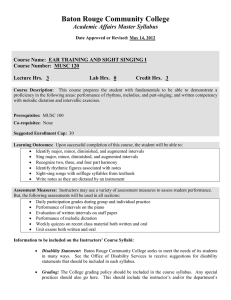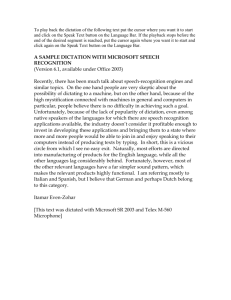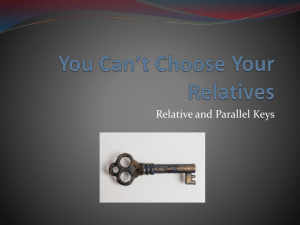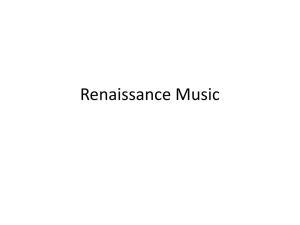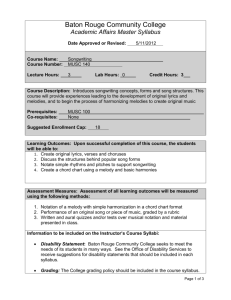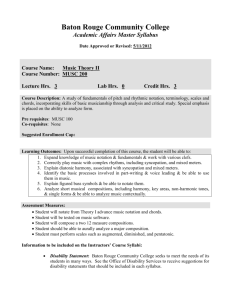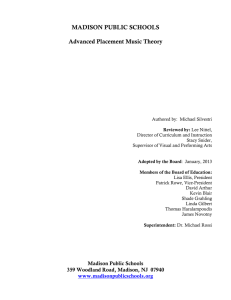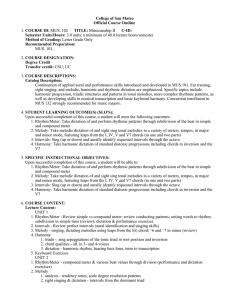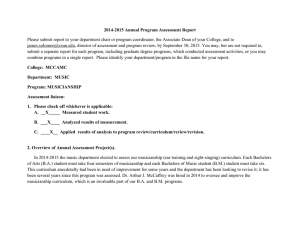Baton Rouge Community College Academic Affairs Master Syllabus
advertisement
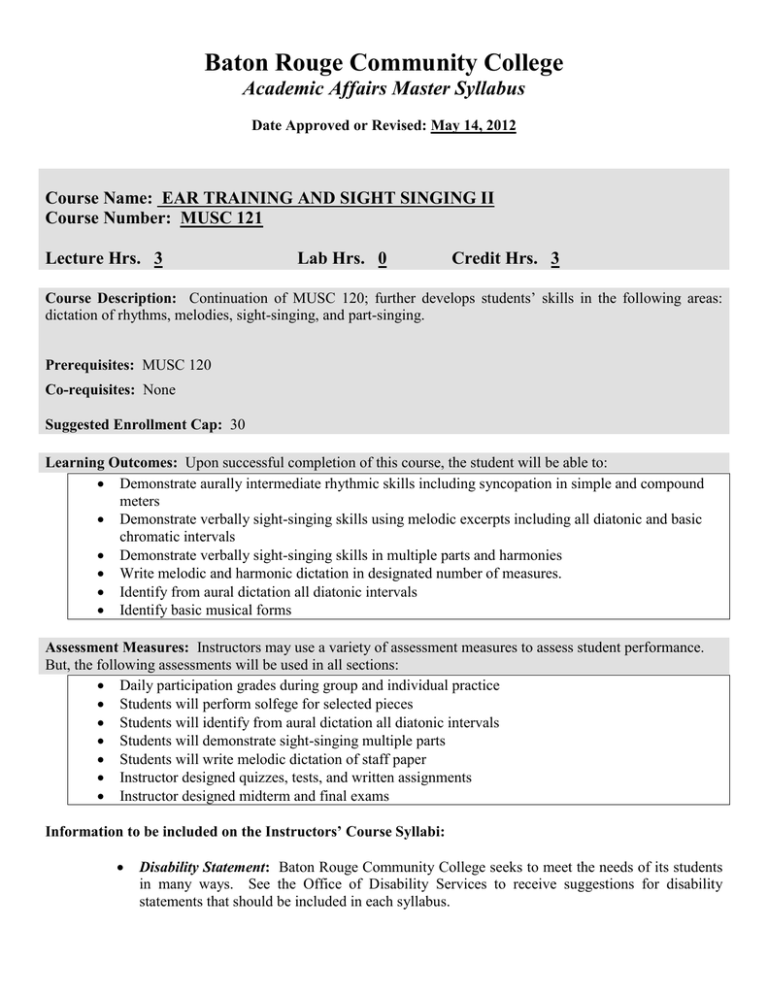
Baton Rouge Community College Academic Affairs Master Syllabus Date Approved or Revised: May 14, 2012 Course Name: EAR TRAINING AND SIGHT SINGING II Course Number: MUSC 121 Lecture Hrs. 3 Lab Hrs. 0 Credit Hrs. 3 Course Description: Continuation of MUSC 120; further develops students’ skills in the following areas: dictation of rhythms, melodies, sight-singing, and part-singing. Prerequisites: MUSC 120 Co-requisites: None Suggested Enrollment Cap: 30 Learning Outcomes: Upon successful completion of this course, the student will be able to: Demonstrate aurally intermediate rhythmic skills including syncopation in simple and compound meters Demonstrate verbally sight-singing skills using melodic excerpts including all diatonic and basic chromatic intervals Demonstrate verbally sight-singing skills in multiple parts and harmonies Write melodic and harmonic dictation in designated number of measures. Identify from aural dictation all diatonic intervals Identify basic musical forms Assessment Measures: Instructors may use a variety of assessment measures to assess student performance. But, the following assessments will be used in all sections: Daily participation grades during group and individual practice Students will perform solfege for selected pieces Students will identify from aural dictation all diatonic intervals Students will demonstrate sight-singing multiple parts Students will write melodic dictation of staff paper Instructor designed quizzes, tests, and written assignments Instructor designed midterm and final exams Information to be included on the Instructors’ Course Syllabi: Disability Statement: Baton Rouge Community College seeks to meet the needs of its students in many ways. See the Office of Disability Services to receive suggestions for disability statements that should be included in each syllabus. Grading: The College grading policy should be included in the course syllabus. Any special practices should also go here. This should include the instructor’s and/or the department’s policy for make-up work. For example in a speech course, “Speeches not given on due date will receive no grade higher than a sixty” or “Make-up work will not be accepted after the last day of class.” Attendance Policy: Include the overall attendance policy of the college. Instructors may want to add additional information in individual syllabi to meet the needs of their courses. General Policies: Instructors’ policy on the use of things such as beepers and cell phones and/or hand held programmable calculators should be covered in this section. Cheating and Plagiarism: This must be included in all syllabi and should include the penalties for incidents in a given class. Students should have a clear idea of what constitutes cheating in a given course. Safety Concerns: In some programs this may be a major issue. For example, “No student will be allowed in the safety lab without safety glasses.” General statements such as, “Items that may be harmful to one’s self or others should not be brought to class.” Library/ Learning Resources: Since the development of the total person is part of our mission, assignments in the library and/or the Learning Resources Center should be included to assist students in enhancing skills and in using resources. Students should be encouraged to use the library for reading enjoyment as part of lifelong learning. Expanded Course Outline: I. II. III. IV. V. VI. VII. VIII. Singing descending intervals; the chromatic solfeggio system. Hearing ii & IV. Performing simple rhythms. Root-position and first-inversion triads Review of melodic interval identification Identify harmonic (simultaneous) intervals –m2, m3, P4, P5, M7, M6. Hearing the compound meter. Harmonic melodies with leaps of sixth and sevenths. Harmonic dictation using iii (III)
